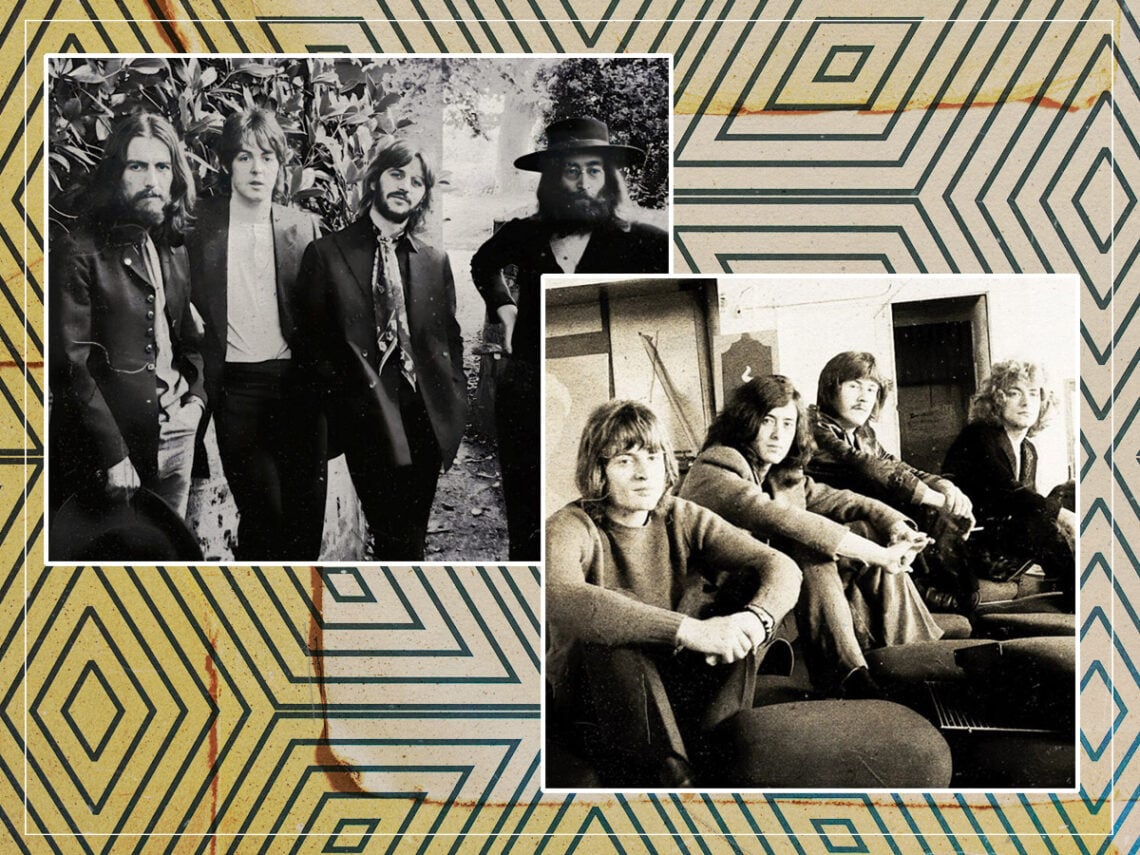The Beatles are the world’s most famous band for a multitude of reasons. Together, they revolutionised culture on every level, from music to aesthetics, and their influence remains deeply resonant today, touching people of all ages and backgrounds. Drawing inspiration from Bob Dylan, the Fab Four demonstrated that songs could transcend the innocuous pop of the era, delving into deeper themes and resonating with listeners through a unique blend of experimentalism, political commentary, and a genuine desire to break away from the conventional path.
It may have taken the Beatles some time to refine their craft—receiving early guidance from Little Richard in Hamburg and unlocking their kaleidoscopic sound after trying weed with Bob Dylan in New York—but when everything clicked, the world was caught off guard. By the time they released the stoned folk of 1965’s Rubber Soul, they had already captivated the hearts and minds of Western youth, with Beatlemania in full swing following their iconic debut on The Ed Sullivan Show in 1964.
Following the release of Rubber Soul in the mid-1960s, the Beatles completely broke away from their past and shattered expectations, ushering in a new era of creativity and experimentation. In the latter half of their career, they not only perfected psychedelia and pioneered alternative rock but also transformed the recording studio into an instrument and made aesthetics an essential aspect of every artist’s work. These groundbreaking innovations are just the beginning—such is their cultural significance that universities now offer courses dedicated to analysing the profound impact of their achievements.
While The Beatles’ accomplishments over such a short period were unprecedented and unlikely to ever be replicated—being the first to do what they did left no room for others to follow in the same way—many forget that as the Liverpudlian quartet neared the end of their career, a new band was rising to prominence and knocked them off their perch: Led Zeppelin.
Formed by guitarist Jimmy Page in 1968 from the remnants of his previous band, The Yardbirds, initially under the name The New Yardbirds, Led Zeppelin quickly rebranded after a quip from Keith Moon. They burst onto the scene with a powerful blend of hard rock, fusing the raw essence of the blues with the ethereal chaos of psychedelia. Page had long envisioned elevating rock music to greater heights during his time with The Yardbirds, and in Led Zeppelin, he brought that vision to life. To achieve this, he assembled the perfect lineup: vocalist Robert Plant, bassist and multi-instrumentalist John Paul Jones, and the thunderous drummer John Bonham.
While Led Zeppelin’s self-titled 1969 debut was a significant success, it was their follow-up, Led Zeppelin II, released later that same year, that marked a monumental shift in rock history. Featuring timeless tracks like the groundbreaking opener ‘Whole Lotta Love’ and ‘Ramble On’, the album made a powerful impact. During the Christmas season of 1969, Led Zeppelin II dethroned The Beatles’ Abbey Road from the number one spot on the charts, symbolising the arrival of an exciting new era in music.
Although the albums alternated at the top of the charts for a time, after the Beatles’ final album, Let It Be, was released in May 1970 and held the number one spot for a month, Led Zeppelin’s much-maligned yet creatively groundbreaking Led Zeppelin III followed, marking a turning point. With III, Page began to fully realise his vision, and the intrigue surrounding the album signalled the definitive end of The Beatles’ reign. A new decade had dawned, ushering in a musical shift toward expansive, esoteric rock and metal. Led Zeppelin cemented this sea change in 1973 when they broke the Beatles’ famous attendance record, set at Shea Stadium in 1965, with a historic concert in Tampa, Florida.
In 1970, when Led Zeppelin was getting used to being the biggest band in the world, they went on TV to discuss such matters. Dodging loaded questions from the interviewer that stacked them up against The Beatles, drummer John Bonham clearly outlined how things had changed. He said of audiences: “I think they are coming to listen and not just look at you and see what you are. This is going back a few years but when I first went to see The Beatles, it was to look at them, you weren’t really bothered what you were listening to and today it’s not what you are, it’s what you’re playing.”
So, did Led Zeppelin have more of an impact than The Beatles?
While the Beatles undoubtedly had a greater overall impact, that doesn’t diminish the significance of Led Zeppelin, who remain one of the most consequential bands of all time. While the Beatles were pioneers in reshaping traditional songwriting, going far beyond Bob Dylan’s infusion of political sentiment, Led Zeppelin revolutionised the very essence of the guitar band. They not only amplified the power of rock but also brought a distinct, heavily stylised approach to their music, transforming the genre into something more dynamic and expansive.
Page had already begun shaping his revolutionary sound with The Yardbirds, one of the most influential bands of the mid-1960s and early pioneers of psychedelia, as heard on the 1966 song ‘Happenings Ten Years Time Ago’. However, it was with Led Zeppelin that he ascended to become arguably the greatest guitarist of all time, influencing a generation of players from Ritchie Blackmore to Eddie Van Halen. Page infused his craft with a true sense of heaviness and cerebral depth. While Jimi Hendrix also pushed similar boundaries, Page did so in a more conceptual and sustained manner throughout Led Zeppelin’s 12-year run, continually expanding his artistry, as demonstrated on monumental tracks like ‘Kashmir’, ‘When the Levee Breaks’, and ‘Achilles Last Stand’.
You could argue that Led Zeppelin had a greater impact as a guitar-driven band than The Beatles. While John Lennon, Paul McCartney, and George Harrison were all iconic guitarists who brought something entirely fresh when they emerged, Jimmy Page’s playing was far more dynamic, inventive, and muscular. His style played a pivotal role in pulling rock music out of its more elementary phase and transforming it into something much more powerful, where the guitar became the centrepiece and most thrilling element of a band’s sound.
All in all, though, without the groundbreaking steps taken by The Beatles, which reshaped musical tastes, bands like Led Zeppelin—and other pioneers of the era such as Black Sabbath and Deep Purple—might not have ascended so rapidly or continued to push the boundaries of rock. The Fab Four revolutionised music across genres and remain emblematic of the 1960s’ experimental spirit. In contrast, Led Zeppelin is celebrated for expanding the scope of rock to stadium-level grandeur, something The Beatles stepped away from as they retreated from live performances. Today, the influence of Led Zeppelin is more prominent in rock music than that of Liverpool’s most famous export.

